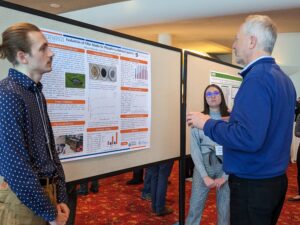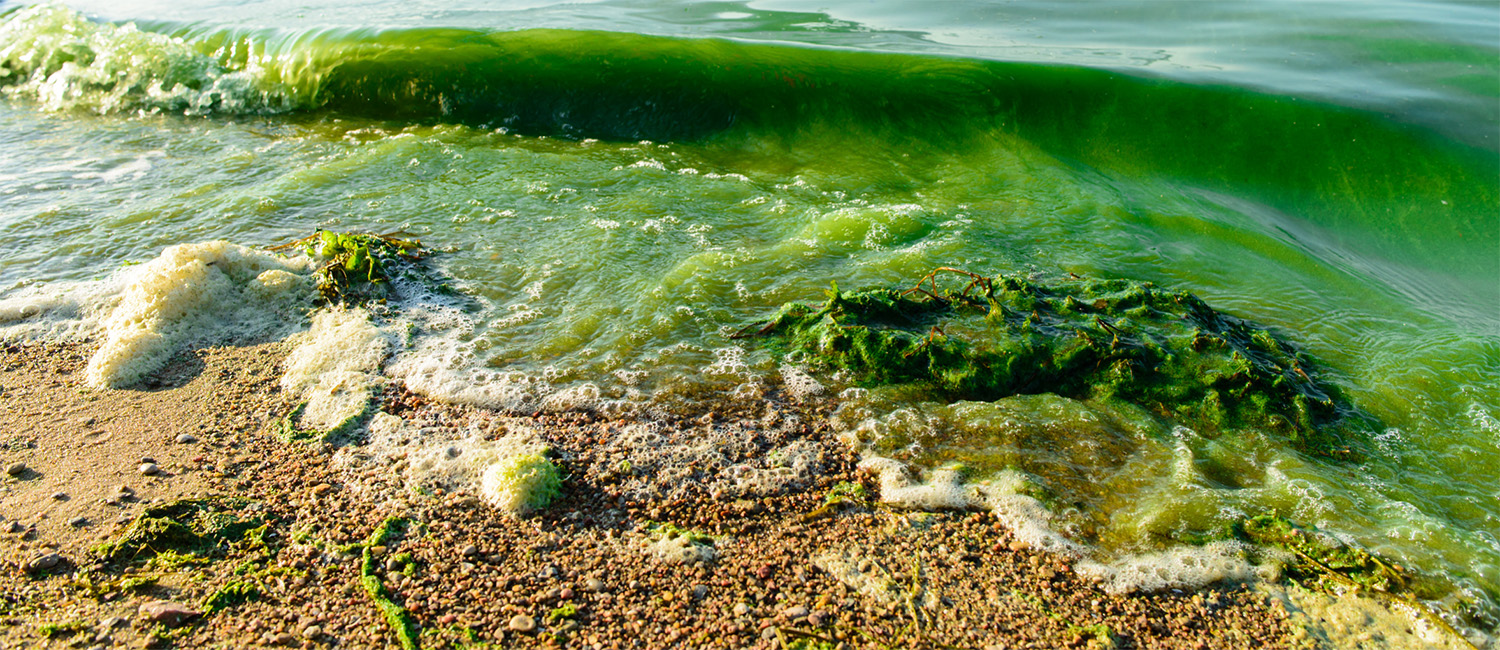Phosphorus plays a critical role in the productivity of the farming industry, but over-reliance on this fertilizing nutrient has alarming consequences, such as toxic algal blooms and dead zones caused by phosphorus pollution in our waterways.
In February, the Freshwater Collaborative of Wisconsin supported two events to engage partners in discussions around phosphorus and to help set a phosphorus research and policy agenda for the next decade.
On Feb. 7, 2023, the UW-Milwaukee Center for Water Policy, with support from the Freshwater Collaborative, the Palmer Foundation and the UW System Water Policy Network, co-hosted a statewide conference on Wisconsin’s phosphorus standards. The conference brought together more than 200 academic researchers, agricultural/conservation professionals/agencies, farmers/producers, policymakers and the public to discuss this important issue in our state.

Katy Schultz, a dairy farmer and President of the Professional Dairy Producers of Wisconsin (PDPW), served as a moderator for one of the conference panels. She spoke about the promising opportunity for cross-sector collaboration and solution building.
“It cannot be ‘us versus them.’ We need the dairy farmers coming together with the crop farmers with the researchers with the policymakers,” she said. “We need to figure out how to create a solution that works for everyone, because if it doesn’t work for everyone, we all lose together.”
Chris Murphy, who served as a conservation specialist with the Rock County Land Conservation Department, was one panelist who provided a case study example of a local phosphorus management program. He said he believes that Wisconsin’s market-like, voluntary compliance options, Water Quality Trading and Adaptive Management, are huge solutions to the phosphorus pollution issue.
“These programs are not only doable, but are the best tools that I’ve had to work with in my 25 plus years,” he said.
New York Times best-selling author Dan Egan presented the keynote address in conversation with Center for Water Policy Director Melissa Scanlan about his book, The Devil’s Element: Phosphorus and a World Out of Balance. Egan discussed the “phosphorus paradox,” that describes the dual nature of phosphorus as a scarce resource necessary for growing food but also a nutrient used in excess that pollutes our surface waters.
“This is not some abstract environmental issue,” he said. “It’s coming down to preserving ourselves.” And yet, his takeaway message was “don’t despair.” According to Egan, the first step in solving the phosphorus paradox is raising public awareness, which is the step he is taking with his newest book.
Access the Conference Session Recordings
In a continuing effort to help raise public awareness, on Feb. 28, 2023, Anya Janssen, water policy specialist at the Center for Water Policy and Sea Grant University of Wisconsin water science-policy fellow, presented key takeaways from the statewide conference during the online Great Lakes Freshwater Symposium: The Impact of Phosphorus Rules on Local Water.
More than 125 water researchers and students from Canadian and American universities, government agencies, nonprofits and concerned citizens registered for the symposium. Symposium attendees had the opportunity to participate in meaningful small group discussions around crafting a research and policy agenda for managing phosphorus in the next decade. This event was sponsored by the Freshwater Collaborative of Wisconsin and the Great Lakes Higher Education Consortium, which is powered by the Council of the Great Lakes Region.
Watch the Symposium presentation

